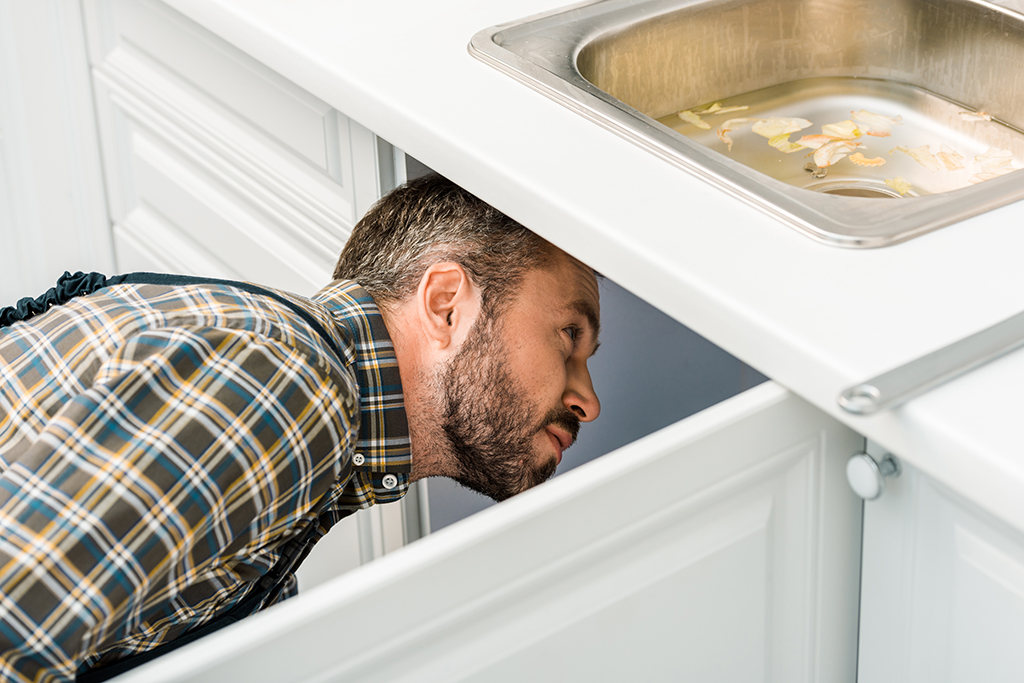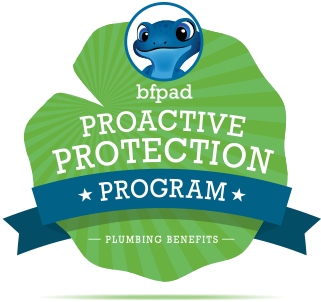
Avoiding Having to Deal with a Major Plumbing Repair | Denton, TX
Photo By LightField Studios at Shutterstock
Your home is often the single largest investment you’ll ever make. The contents and major home systems make up the bulk of the value. Plumbing runs throughout your home, and the wrong problem can lead to damage to your home and your belongings. A plumbing repair can be very expensive, depending on the type of problem and labor needed to resolve the issue. In many cases, a good maintenance plan and the right prevention can help avoid costly repair bills.
Inspect Your Plumbing Regularly
The best way to avoid a major plumbing repair is through early detection. The more quickly you notice a problem, the less time it has to do damage. A small leak can grow, leading to a burst pipe and flooded home. Cleaning up after a flood is challenging and often means major damage. Your mitigation efforts might include things like cutting out sections of drywall or tossing the contents of an affected closet.
If you can catch leaks while in the slow seepage stage, you can minimize the cost of a plumbing repair. Inspections are the best way to catch problems when they are small. At the beginning of every season, take a couple of hours to visually inspect your pipes. The areas that should get the most attention include bathrooms, sinks and major, water-using, appliances.
Where to Look for Leaks
A residential hot water heater likely holds 60 or more gallons of water that could wind up on the floor if there is a problem. If the water heater is in an unused area, water could continue to pour until someone notices the flooding. Frequent inspections reduce that risk.
Most bathrooms have access panels that allow you to inspect the pipes leading to the sink, shower, and drains. A quick glance is enough to reveal whether or not there is any moisture buildup hiding in the walls.
Faucets are another common culprit. Take a minute to check for drips or slow leaks. Fixing a faucet is an inexpensive repair that could represent valuable savings on utility bills. According to the United States Geological Survey, three dripping faucets can add up to more than 100 gallons of wastewater per year. Fixing those faucets is a drop in the bucket.
Check Outdoor Fixtures
When looking for leaks, don’t forget to take a look at any outdoor water fixtures. You may have a garage with running water, a pool or a hose spigot or two. Any of these locations can be a potential repair. While the warm weather in Denton, TX means you don’t need to worry about freezing hostesses, the year-round warmth means you use these fixtures more regularly, generating more wear and tear. As you perform your seasonal inspections, be sure to head outdoors.
Include the HVAC System on Your Checklist
Your air conditioning unit is another potential plumbing repair that can lead to major costs. Cool air running through metal pipes can lead to condensation and moisture hidden behind walls and panels. Over time, that hidden moisture can provide a breeding ground for mildew, mold, and pests. Whether you have a recurring issue with gnats or unexplained humidity levels, taking a look at your HVAC system is a good idea.
Next Steps and Plumbing Repair Prevention
Once you’ve performed your leak inspection, take a little bit of time to check for other issues like slow drains. Slow drains can indicate a clog in the pipes, which can mean a major repair on the horizon. To help prevent clogs and slow drains, you can take a few preventive measures.
- Install drain catches. In both bathroom and kitchen sinks, a catch or trap can prevent food, hair, and thickened detergents from running into your drains. If you kitchen sink has an attached garbage disposal, you won’t need a trap, but you should be sure to operate it properly by always turning on the water before turning on the disposal.
- Scrape plates and dishes into the trash. While a garbage disposal can take care of some of the odds and ends that don’t make it into the can, you should avoid sending starchy vegetables and grease through your plumbing. Grease can thicken at room temperature as it cools, creating a tight plug inside your pipes. Starchy vegetables don’t break down well in the disposal, leaving you with a gooey mess to clog up the pipes.
- Avoid harsh chemical cleaners. Many pipe cleaners have high acid contents or use unsafe chemicals that can do damage to your plumbing. Avoid a plumbing repair by sticking with safe, natural alternatives. A mixture of equal parts baking soda, sea salt, and hot water can gently lift clogs and scour the inside of your pipes without the need for chemical cleaning agents.
- Clean sinks and tubs regularly. A slow drain is often the result of soap scum build-up and hair or food. Cleaning out the part of the drain that is visible from the top of the unit helps reduce the amount of stuff that disappears into your plumbing. When washing dishes or taking a shower, take a moment to wipe out the drain as you finish.
Be Prepared for Plumbing Repair
No matter what you do, you will eventually need a plumbing repair. Pipes can last for decades, but will eventually need replacement. This is particularly true if they’re not maintained regularly. If you notice a leak or need any plumbing repair in Denton, TX, contact bluefrog Plumbing + Drain for quick and efficient repairs.
Our technicians are available 24/7 and practice all recommended safeguards to avoid contact while working at your home. Call 469-214-2582 to schedule a visit today, or use our online scheduling tool.



















